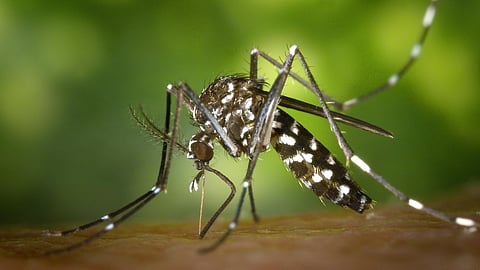

In a groundbreaking discovery, scientists may have just found a unique way to tackle some of the world’s most dangerous mosquito-borne diseases, including dengue, yellow fever, and Zika. The solution? Turning male mosquitoes deaf—and no, it’s not a joke!
Mosquitoes rely on sound to mate. The male mosquitoes, particularly Aedes species, are irresistibly drawn to these sounds, using them to find and mate with female mid-flight. But what happens if the males can’t hear the call? They don’t mate.
In an experiment, the scientists tinkered with a protein known as trpVa, a crucial component for the mosquitoes’ hearing. The result? The mutated males showed no interest in the females, even when left in the same cage for three whole days. Normally, male mosquitoes would finish mating within 20 seconds of contact with a female. But in this experiment, the males were completely unresponsive to the female’s flight tones—a striking contrast to their usual behavior.
The discovery could be a game-changer in the fight against diseases transmitted by mosquitoes, which infect nearly 400 million people every year. By preventing males from mating, researchers are looking to reduce mosquito populations by halting reproduction. Without copulation, fertilization doesn’t happen, and no new mosquitoes are born. With fewer mosquitoes to spread disease, the public health threat could be dramatically reduced.
But that’s not all. In addition to the “deafening” method, researchers are exploring the possibility of releasing sterile male mosquitoes into affected areas. These males wouldn’t be able to mate either, which would further reduce the mosquito population over time.
1. Y. Wang, D. Thakur, E. Duge, C. Murphy, I. Girling, N.A. DeBeaubien, J. Chen, B.H. Nguyen, A.S. Gurav, C. Montell, Deafness due to loss of a TRPV channel eliminates mating behavior in Aedes aegypti males, Proc. Natl. Acad. Sci. U.S.A. 121 (47) e2404324121, https://doi.org/10.1073/pnas.2404324121 (2024).
(Input from various sources)
(Rehash/Dr. Sreelekshmi P/MSM)
